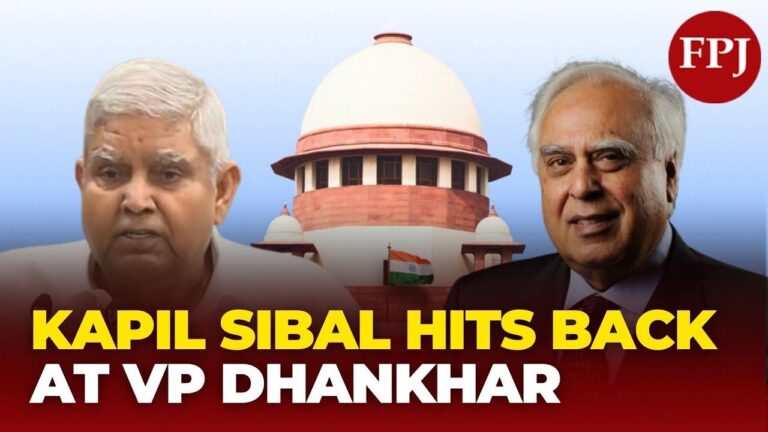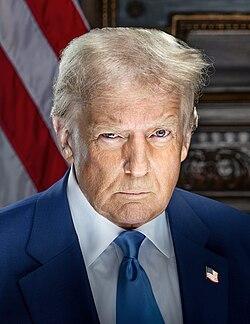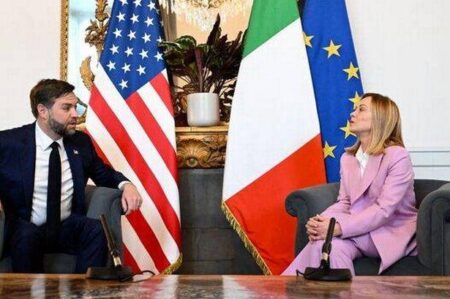Political Tensions Rise Following Vice President Dhankhar’s Comments on the Supreme Court
Recent developments have intensified political discord in India, sparked by Vice President Jagdeep Dhankhar’s remarks regarding the Supreme Court.His statements have drawn sharp rebuke from opposition leaders, who argue that they threaten the integrity of the judiciary and call for his prompt resignation. This incident underscores a growing rift between India’s executive and judicial branches, raising alarms about the essential separation of powers within the nation. As lawmakers unite against Dhankhar’s comments, concerns about their implications for India’s democratic framework and institutional future become increasingly pronounced.
opposition Calls for Dhankhar to Resign Over Supreme Court comments
The political climate has grown tense as opposition figures express their indignation over Vice President Jagdeep Dhankhar’s recent remarks concerning the Supreme Court.Critics are demanding his immediate resignation,contending that his comments jeopardize judicial credibility and exacerbate tensions between legislative and judicial entities. Key points raised by these leaders include:
- Threat to Judicial Independence: Fears that such statements could skew public perception regarding judicial neutrality.
- Need for Political Accountability: A call for all officials to respect court rulings and refrain from politicizing legal matters.
- Demand for Clarity: Requests seeking further description of his controversial remarks.
The opposition is organizing protests and parliamentary debates to voice their concerns effectively. They assert that Dhankhar’s comments reflect a broader trend threatening democratic institutions rather than being mere personal opinions. As discussions gain momentum,various political parties are collaborating to propose a motion aimed at holding him accountable.
Conversely, some supporters defend Dhankhar’s right to free speech, claiming his words were misinterpreted or taken out of context. This division raises significant questions about future political dialog in India.
Legal experts Discuss Impact of political Commentary on Judiciary
The controversy surrounding Vice President Dhankhar’s statements has prompted significant discourse among legal professionals regarding its potential impact on public trust in the judiciary—an institution expected to function independently from political pressures. The primary concerns highlighted include:
- Erosion of perceived impartiality within the judiciary.
- The risk that citizens may view judicial actions as politically motivated.
- Perturbations in power dynamics among governmental branches.
A number of experts warn that when high-ranking officials publicly criticize court decisions or question judicial authority, it sets a troubling precedent likely to encourage similar behavior at lower government levels. This situation raises critical inquiries into what constitutes appropriate boundaries around political commentary related to legal matters.
A recent survey conducted among legal practitioners revealed overwhelming support for clearer guidelines governing such discourse:
| Opinion Type | % Support/Disagreement |
|---|---|
| Support stricter guidelines on commentary | 76% |
| Oppose restrictions on commentary rights | |
| No strong opinion/Unsure |
Demands for Judicial Independence Amid Political Strife
The backlash against Vice President Dhankhar’s comments has ignited fervent discussions advocating reaffirmation of judicial independence during this politically charged period. Legal scholars alongside opposition members contend that such remarks undermine judiciary authority at a time when maintaining public trust is crucial.
This situation highlights an urgent need across all government sectors to uphold principles separating powers effectively; many politicians emphasize prioritizing judicial integrity over partisan interests with calls including:
- Pledging allegiance to rule-of-law principles as basic tenets of democracy;
- Enhancing safeguards against external influences affecting court decisions;
- Encouraging transparency in governmental interactions with courts;
As tensions continue escalating , there remains an imperative need fortifying defenses around judicial autonomy ensuring justice prevails without bias or interference .
Conclusion: Navigating Political Discourse Surrounding Judiciary Matters
The current landscape reflects heightened scrutiny following Vice President Jagdeep Dhankhar ‘s contentious remarks concerning India’s highest court . The demand from opposition factions calling forth immediate resignation illustrates deep-seated worries surrounding potential ramifications impacting both independence within judiciary systems along with relations shared amongst executive authorities .Observers remain vigilant observing how this evolving narrative unfolds , recognizing its importance not only towards individual accountability but also broader implications shaping governance structures moving forward. As developments progress , continued examination will be necessary both inside legislative chambers alongside public forums alike .




